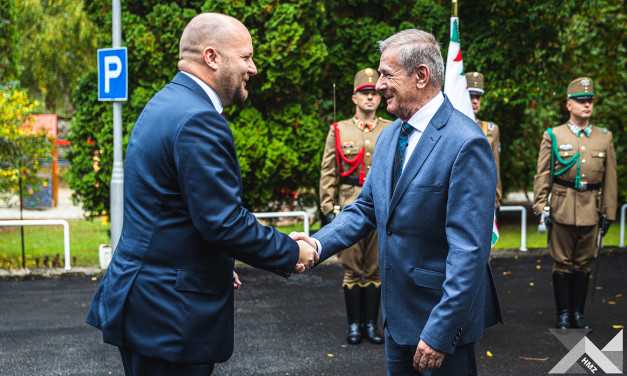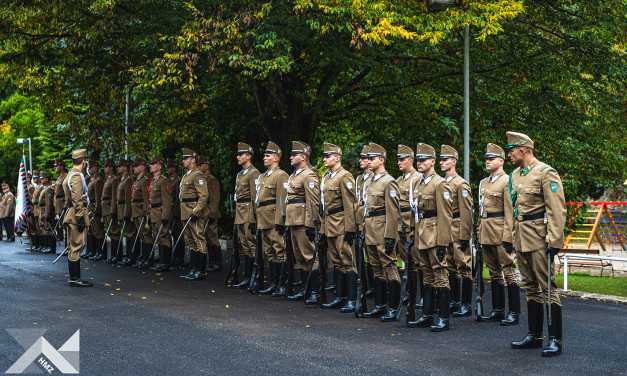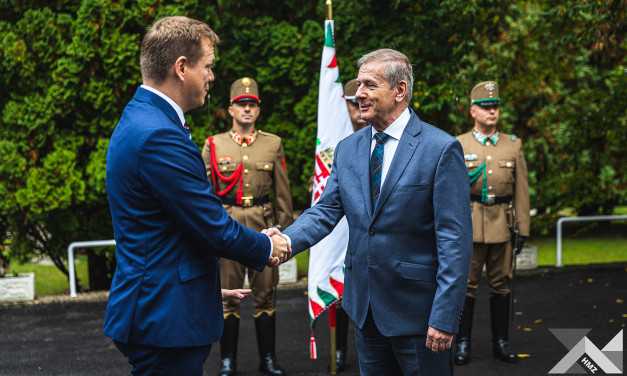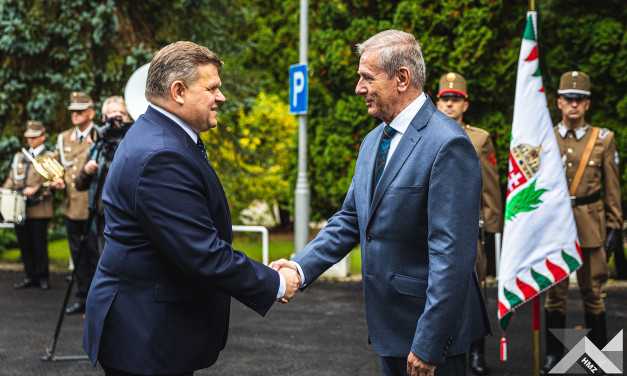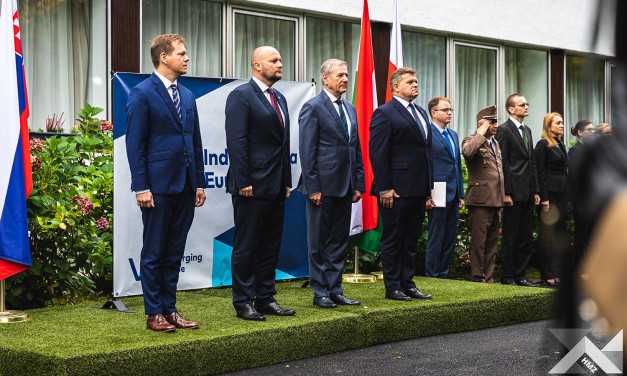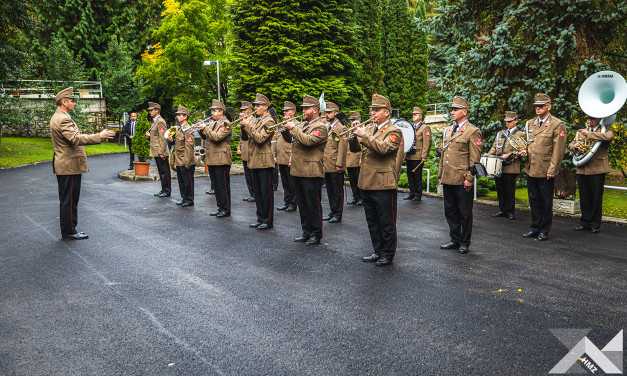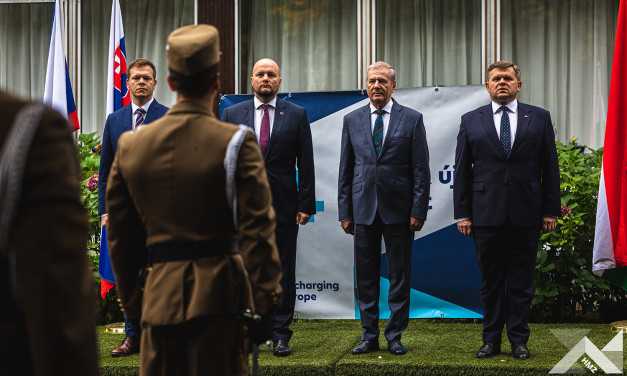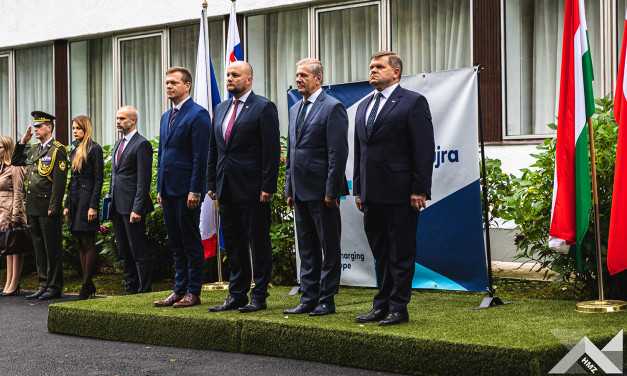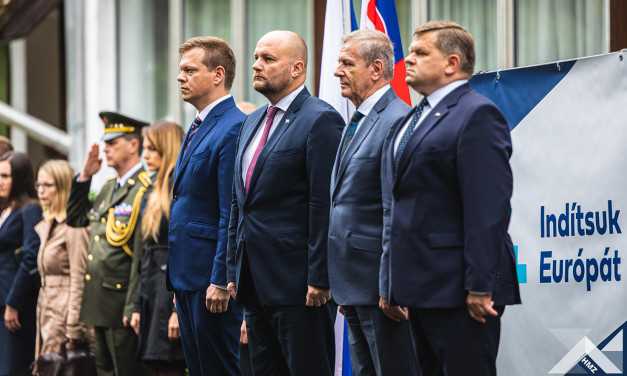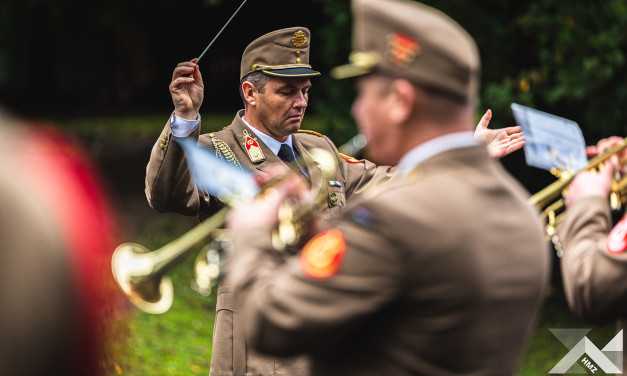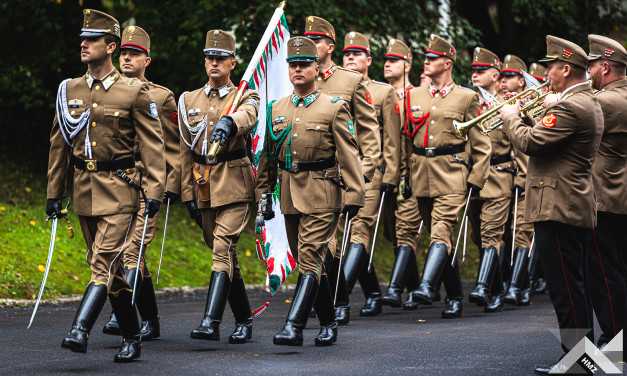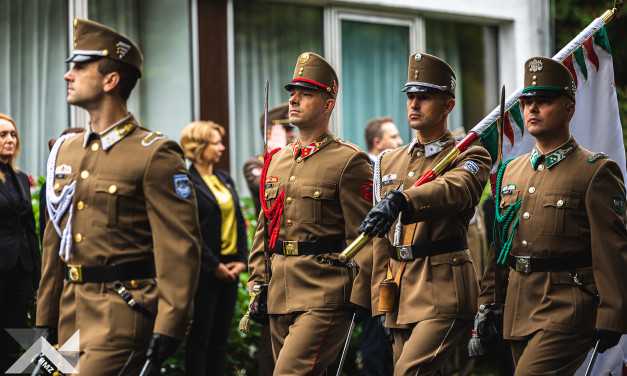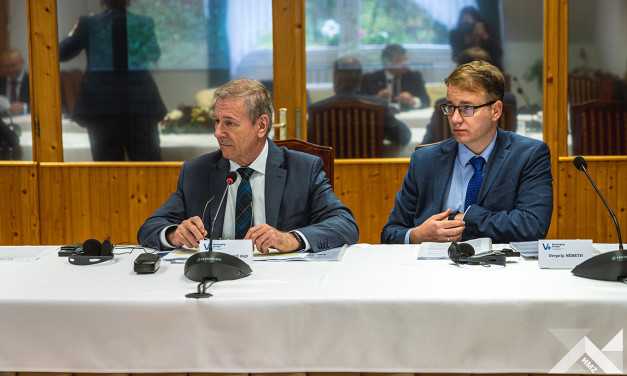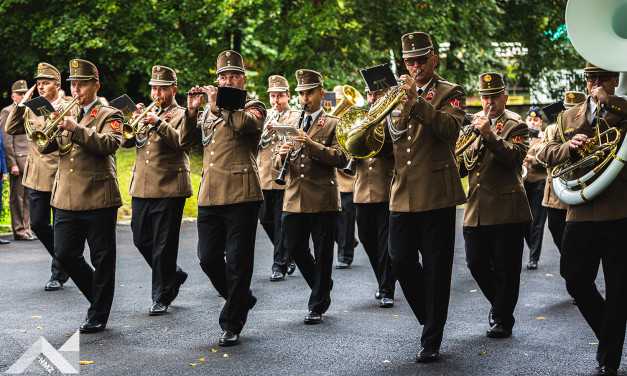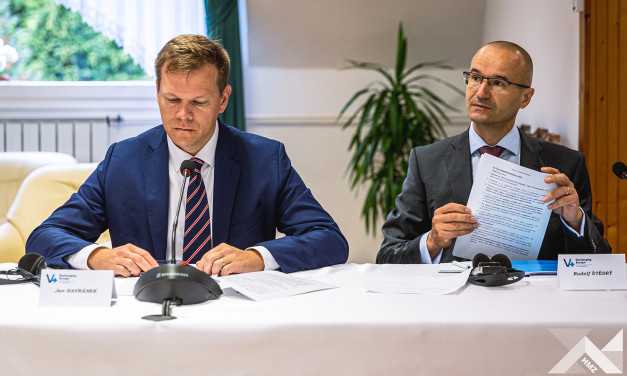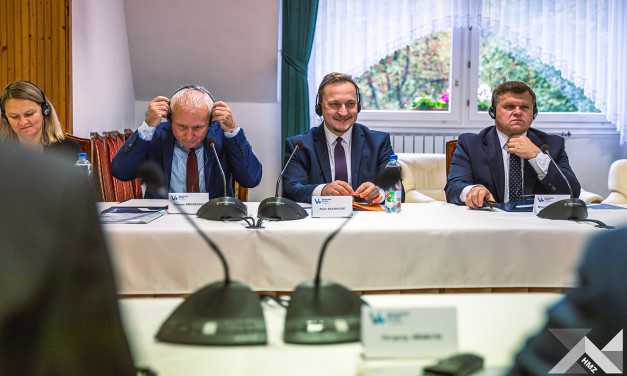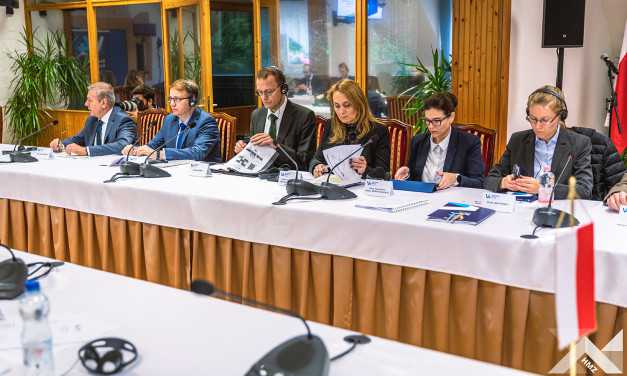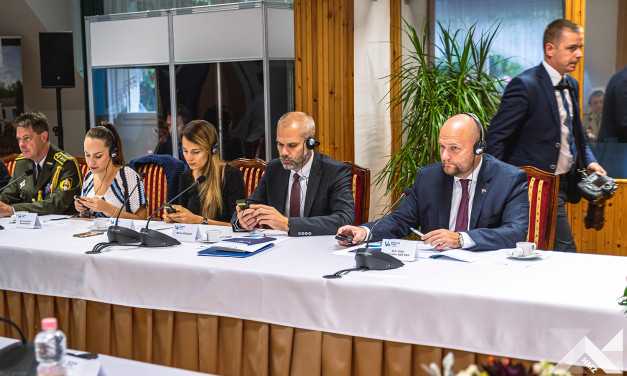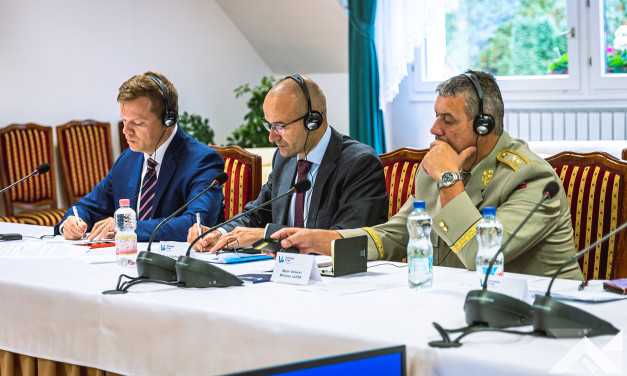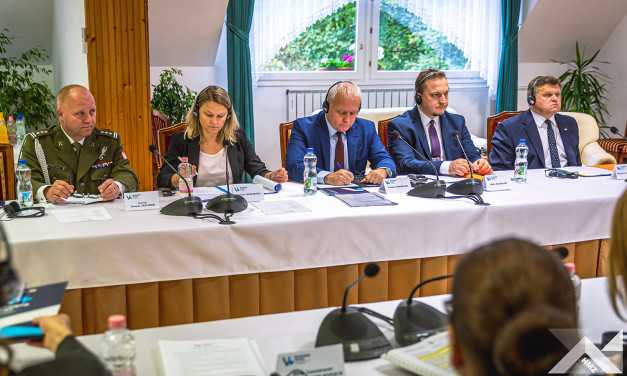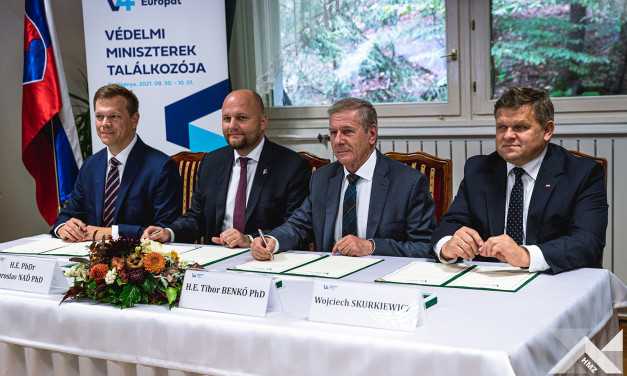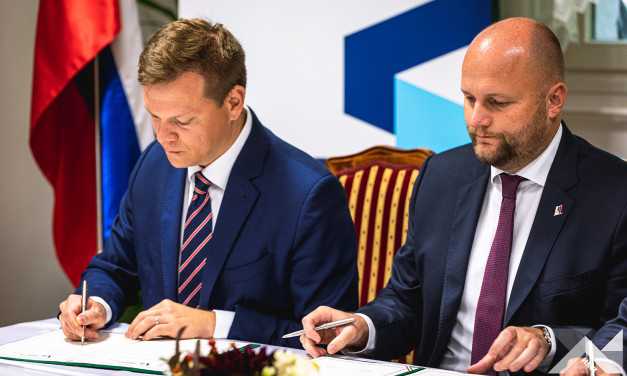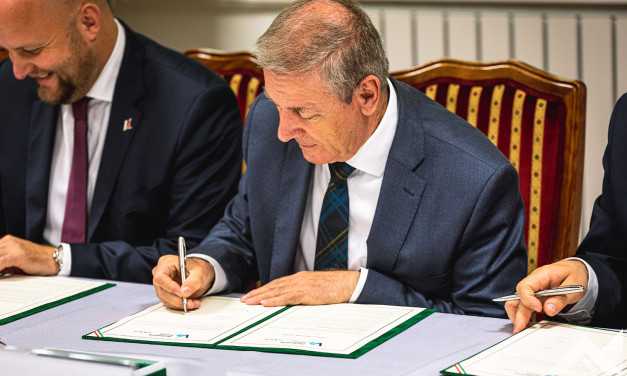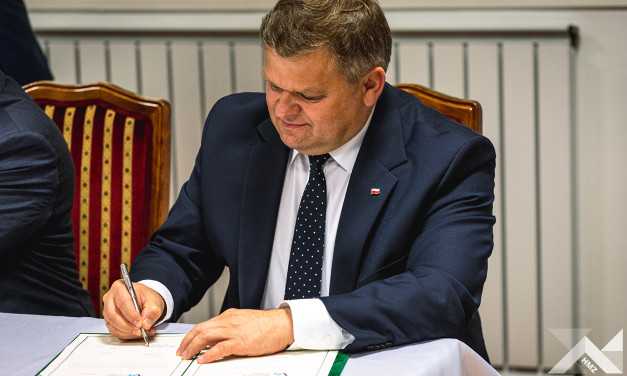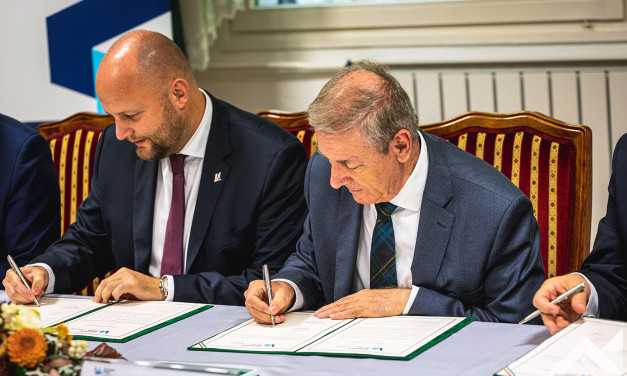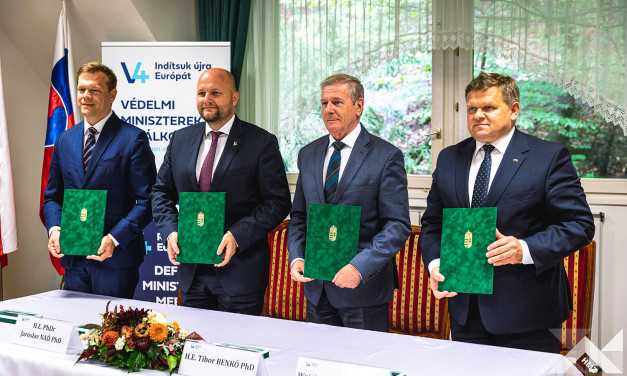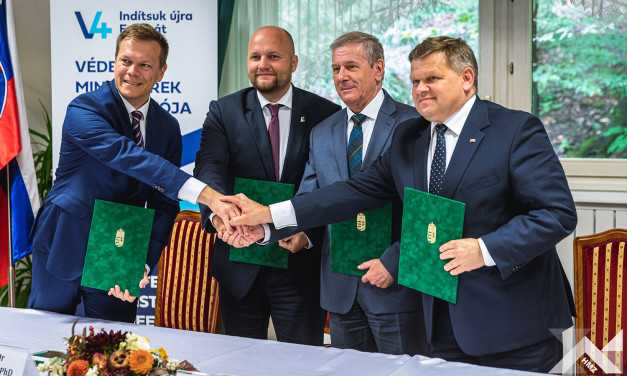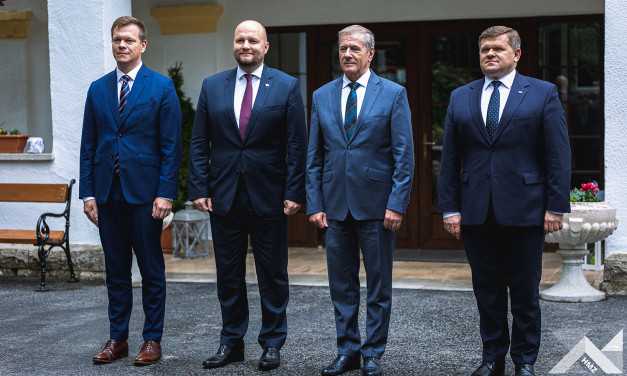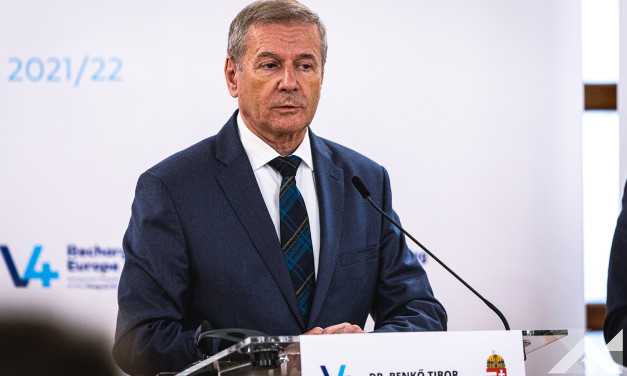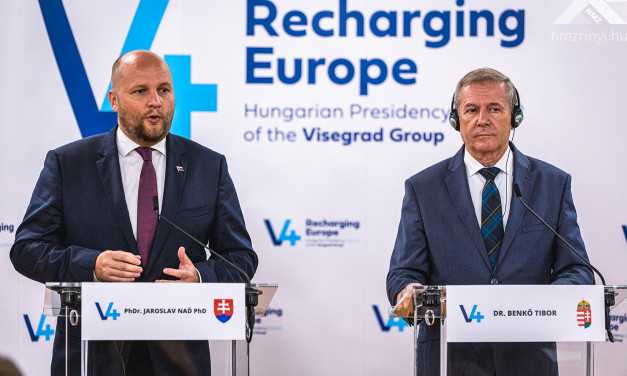Progressive Cooperation at the V4 Meeting
Text: Béla Révész | Photo: Kinga Szováthy | 05:45 October 2, 2021We work in a powerful Alliance, but the strength of this system must be provided by national capabilities, said Minister of Defence Tibor Benkő at the press conference held after the meeting of V4 defence ministers in Erdőbénye on 1st October.
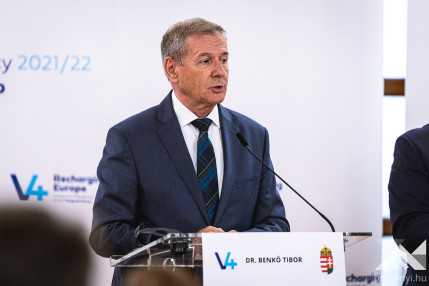
Minister of Defence of Hungary Tibor Benkő, Slovak Minister of Defence Jaroslav Nad', Czech Deputy Minister of Defence Jan Havranek, and Polish Deputy Minister of National Defence Wojciech Skurkiewicz held a joint press conference on Friday, following the meeting of V4 Defence Ministers in Erdőbénye.
Tibor Benkő evaluated the first meeting of defence ministers held during the Hungarian presidency of the V4 countries, which focused on defence policy issues and military cooperation, both constructive and progressive. At the meeting, he had presented the concepts and action plan of the Hungarian Presidency, which was adopted by the partner countries. “A ministerial tasking was also developed that outlines defence policy issues, the responsibilities of chiefs of defence and armament directors. We signed this tasking as a joint agreement, and in the future we will continue our cooperation on its basis”, said Tibor Benkő, adding that all four states have their own national defence characteristics, including the threats they consider as a priority. During the Hungarian presidency further cooperation will be developed in line with these features.
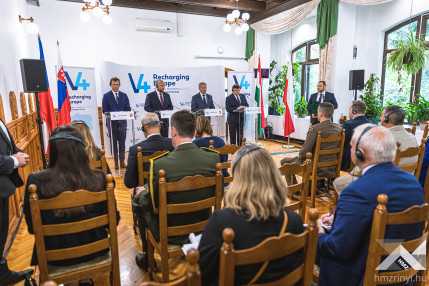
The Minister of Defence emphasized that there were a number of common issues that affect all V4 countries, including priority points as well. “The importance of building national capacity was highlighted. We work in a powerful Alliance and without disputing the unity of this system we claim that its strength must be composed by the forces of the nation-states. That is why we give priority to this issue and implement the force development program on this basis”, he said.
Tibor Benkő emphasized that all four countries regarded the changed security challenges, including a hybrid form of warfare that involves cyber warfare, as a priority. They agreed on the importance of a volunteer reserve force, as well as on the fact that stabilizing and protecting peace in the Western Balkans is a key matter for the security of Central Europe.
Of course, NATO's withdrawal from Afghanistan was also on the agenda of the meeting. As Minister Tibor Benkő stated: the issue raises a lot of questions, at the same time it highlights mistakes that will be avoidable in the future. It is particularly important to analyse them in light of the fact that the four countries will cooperate in common mission areas in the future.
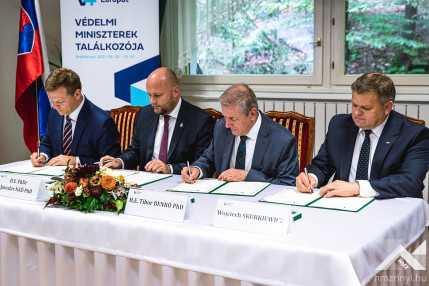
The minister said that illegal migration had been discussed at the meeting, which is also a priority defence issue not only for the V4 but for the entire continent too, especially because illegal migration has the potential for terrorism. As he said, Poland is currently struggling with problems similar to those of Hungary in 2015, therefore a security border fence is being constructed on the Polish-Belarusian border.
In conclusion Tibor Benkő stated: "we have signed an agreement that outlines for all of us the purpose and direction of our cooperation, which we have to continue."
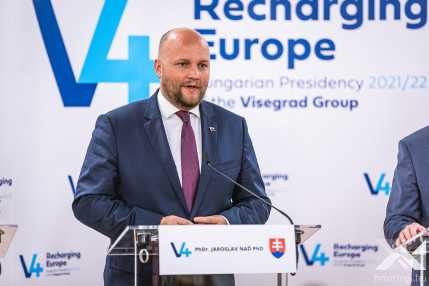
In his assessment, Slovak Defence Minister Jaroslav Nad’ said: it was once again proved that the Meeting of V4 Defence Ministers is of outstanding value in the field of interstate cooperation. The meeting focused on fundamentally new areas, such as military medical cooperation and defence industry collaboration. As he stated, the members have serious ambitions for the entire area, but the elaboration of details is still a task for the future.
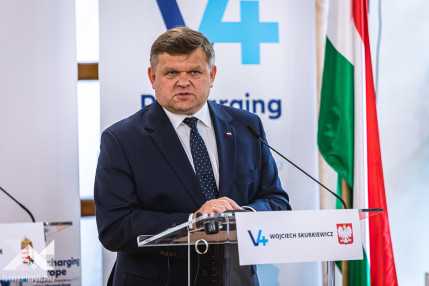
Polish Deputy Minister of National Defence Wojciech Skurkiewicz called the V4 conference a very important event, at which issues were discussed that are important not only for the four member states, but also for Europe and NATO as a whole. Regarding the Polish border fence, he said that curbing illegal migration is one of the key tasks of the present and the future. Poland is therefore building a 180-kilometer-long security fence on the Belarusian border: in the region where a state of emergency has also been declared, thousands of soldiers are currently guarding security.
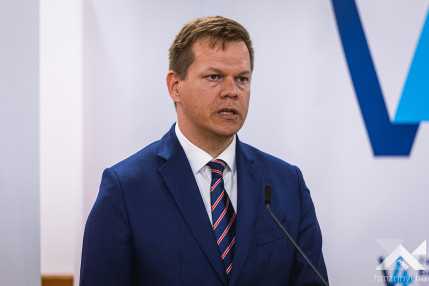
Czech Deputy Defence Minister Jan Havranek emphasized the openness and sincerity of the conference. He emphasised that traditional projects, like the concept of a joint battlegroup, and new challenges, such as hybrid warfare or the issue of military mobility essential in the Central European region, were discussed as well as. As he said, the objective is a much stronger Europe in terms of security, without weakening NATO.
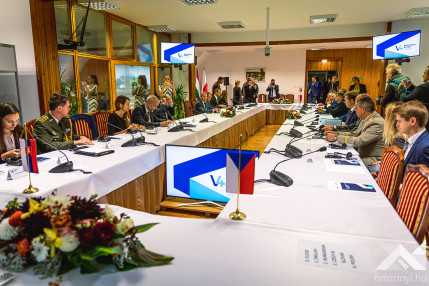
At the end of the press conference, Minister of Defence Tibor Benkő said: the details of the current agreement would be elaborated in detail by the military experts of the countries so that they can be put into practice as soon as possible.
Galéria
